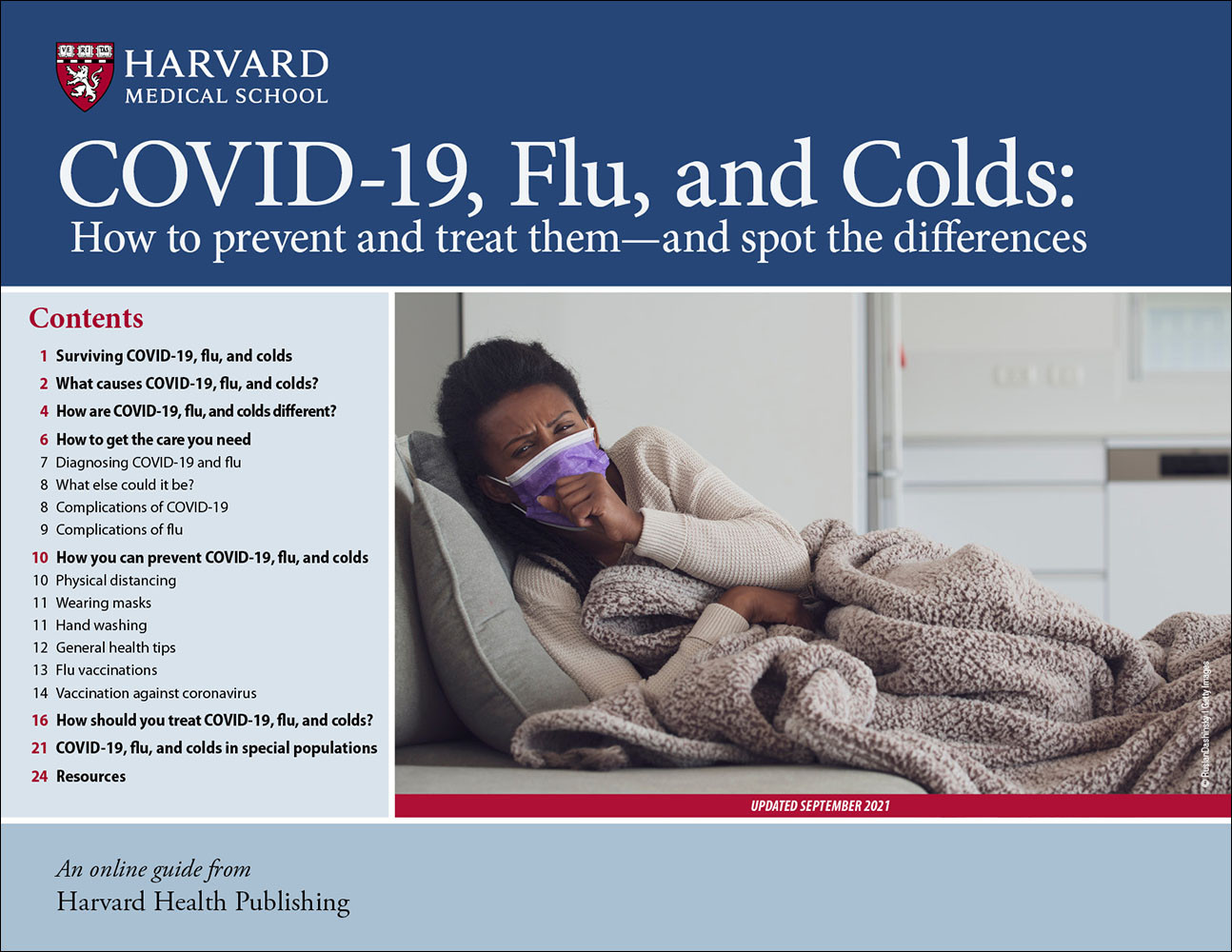What does the flu have to do with the heart?
Ask the doctor
 Q.
I have heart disease, and my doctor says that makes it more important for me to get a flu shot. What does the flu have to do with the heart?
Q.
I have heart disease, and my doctor says that makes it more important for me to get a flu shot. What does the flu have to do with the heart?
A. Many patients have told me that they don't see the value in getting flu shots because "it's just the flu." They imagine that influenza ("the flu") is nothing more than the common cold and will just go away in a few days. Unfortunately, the symptoms of the flu are usually more severe than those of a common cold: worse coughing, much worse aching and fatigue, and higher fever. In addition, the effect of the flu on the lungs can cause blood oxygen levels to drop to dangerously low levels. As a result, the flu can lead to hospitalization and death. This is not just a rare event: the CDC estimates that from 2010 to 2020, the flu resulted in 140,000 to 710,000 hospitalizations and 12,000 to 52,000 deaths each year in the United States. By comparison, about 40,000 people die in auto accidents in the U.S. each year.
How does flu affect the heart? The virus only rarely infects the heart directly. Instead, the adverse effects of the virus on the heart are due to atherosclerosis of the arteries of the heart. Many people over age 50 have atherosclerosis — and in some people it has not yet been diagnosed. Because atherosclerosis narrows the arteries and reduces the flow of blood, less oxygen reaches the heart muscle. When the effect of the flu on the lungs lowers the amount of oxygen in the blood, this further reduces the supply of oxygen to the heart. This can lead to a heart attack or cardiac arrest (sudden death).
Is this risk more than theoretical? Many careful studies have shown there is an increased risk of heart disease following a bout of flu. In one study of 80,000 adults with influenza, nearly 12% had a serious cardiac event, such as a heart attack, during or in the weeks after getting the flu.
Although having the flu definitely increases the risk of a heart attack, what's the evidence that getting a flu shot protects against a heart attack? An analysis published online April 29, 2022, by JAMA Network Open combined the results of six randomized trials involving over 9,000 people. Getting a flu shot reduced the risk of a heart attack and related cardiac events by 34%; the protection was even greater in people who had recently experienced heart trouble.
So, I agree with your doctor: the fact that you have heart disease makes it even more important that you get a flu shot each year. The same is true of people who are at increased risk for heart disease, including people over 60, smokers, or anyone with high blood pressure or diabetes. Play it safe.
Image: © Sebastian Kaulitzki/Getty Images
About the Author

Anthony L. Komaroff, MD, Editor in Chief, Harvard Health Letter; Editorial Advisory Board Member, Harvard Health Publishing
Disclaimer:
As a service to our readers, Harvard Health Publishing provides access to our library of archived content. Please note the date of last review or update on all articles.
No content on this site, regardless of date, should ever be used as a substitute for direct medical advice from your doctor or other qualified clinician.
















